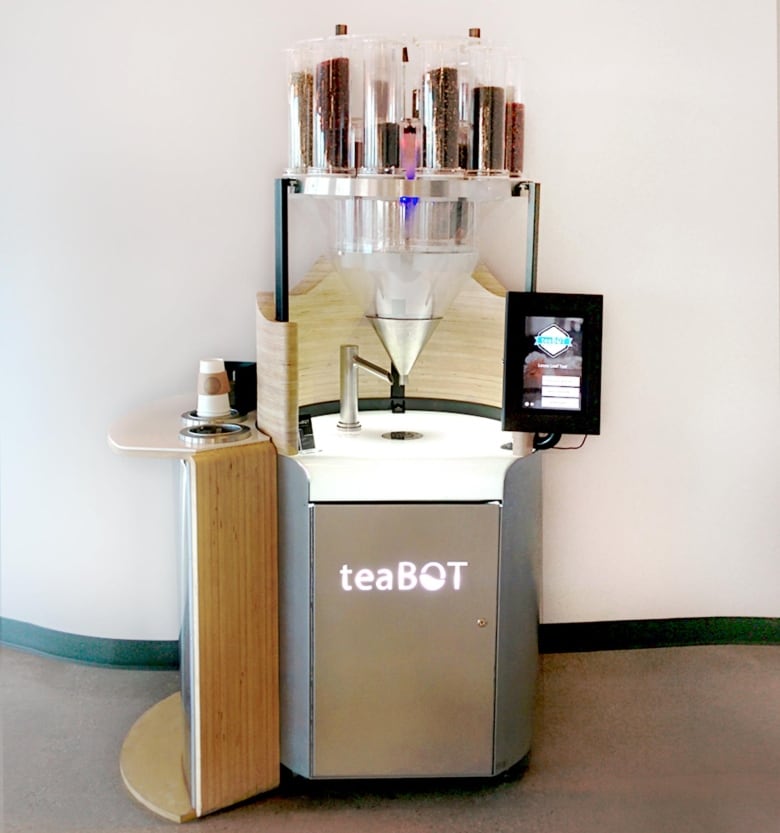‘Cake ATMs’ pop up at popular locations in Calgary
Natalie Valleau · CBC News · Posted: Feb 01, 2022

Vending machines have taken a new, upscale form in the Canadian market, and experts say the pandemic, along with more innovative technology, have spurred this shopping trend.
Most recently, “Cake ATMs” have been installed at 25 shopping centres. Most are in Ontario and Quebec, but four are in Calgary. The individually wrapped slices are shipped daily from the United States by Carlo’s Bake Shop — otherwise known as the Cake Boss.
And getting your hands on one seems like a piece of cake.
“It just seems quick,” said Calgary customer Andrew Venini. “You can see all the selection right there, and all you got to do is deal with the screen.”
Globally, the industry is expected to see 10 per cent annual growth each year until 2027, and big Canadian companies like Sport Chek, Canadian Tire, Rexall and The Source have all started to invest.
Shamira Jaffer is the president and CEO of Signifi Solutions, a vending machine supplier based in Ontario that has tapped into automated retail on an international level.
Her smart machines are located across the world in hospitals, malls, airports and grocery stores.

But her Canadian clients have recently wanted more of an in on the action during the past two years, and she attributes it to customers being more comfortable with online shopping.
“Today, people are buying stuff unseen, based on a picture and some words,” she said.
“I think there’s been a big shift in people’s behaviours. There’s a lot more trust, so they’ll go and buy from [vending] machines as long as the brand is recognizable.”
What vending machines can sell
Jaffer says the look of the machine has also started to change and can be more curated to fit the brand, as well as be able to dispense different shapes.
“Build-A-Bear is selling bears out of our machines, but it’s hard to dispense so we created a special holder that can dispense the bear without it being in a box.”
What’s inside has also become more upscale, with some customers spending $1,200 just to buy tech at the airport, she said.
“It took the retailers a little bit of time to realize that customers are adopting. And now I think retailers are realizing that, ‘you know what, this makes a lot of sense,'” she said.
“If you have a unique product … that’s a really cool brand, you could put it in a mall and it’s much more cost-effective.”
In Alberta, malls and other popular destinations have started filling vending machines with false eyelashes, skin care products or university sweatshirts.

It gets ever crazier in Toronto, where automated food kiosks are all the rage, selling specialty items such as beetroot hummus, or tea that’s custom blended from a selection of 18 ingredients.
Rehman Mirali, CEO of TeaBot, says dozens of the company’s automated machines are deployed in Toronto, Boston and Chicago.
He says there’s a couple reasons why this business model works — the first being that there’s no brick-and-motar costs.
“We’ve had a lot of success on university campuses, but you’ll notice that all of the sales happen at the same time because everyone’s moving between classes at the same time,” he said.
“There’ll be this big spike on the hour, and then it’ll be dead for 50 minutes, and then another big spike. So it’s just more efficient to not have a person sitting around during that whole time.”

As well, the science behind building the machines has become more intelligent and innovative.
“Here in North America, you’ll see more touch screens inside quick-serve restaurants,” he said.
The CEO, who also has a a PhD in aerospace robotics, believes the trend will continue to grow, especially in the food service industry.
“Automation is well suited for repetitive tasks … and there’s a lot of that in the kitchen,” he said.
“So if we can just do all of the prep work with machines, then that lets the humans do the fun part, the innovation part.”
Pandemic fast tracks automated shopping
Kersi Antia, a marketing professor at the Ivey Business School at Western, calls it’s a perfect storm due to social isolation from the COVID-19 pandemic
“We’d rather not do with the awkwardness of human interaction,” he said. “It may be impersonal, but not everybody wants personal service.”
A survey in August found that “not having to talk to people” was one of the top reasons customers gravitate toward “unattended retail environments.”
Convenience is another reason some customers are more likely to buy it when it’s dispensed through a vending machine.
“They’re all over the place. It just makes it easier for us to pick up something which we may not have planned on earlier,” Antia said.
“You can’t beat the convenience. You can’t beat the brand salience and the fact that you’re in and out as soon as you like.”


